

Today we’d like to introduce you to Kristina Rodriguez.
Kristina, let’s start with your story. We’d love to hear how you got started and how the journey has been so far.
I started the Strong Roots Movement when I was a junior in high school, at Miami Beach Senior High School. I was working on obtaining my Girl Scout Gold Award. I saw the Inequality between school’s funding level within a public district, Miami Dade to be exact, creating a spending inequality issue to those in inner-city schools by them receiving less. So, I decided to try to tackle this issue to the best of my ability and created The Strong Roots Movement, a sustainability-based organization that installs organic edible garden beds in under-served elementary schools and at-risk youth centers to teach the upcoming generation how to be green, organic, and sustainable. With two elementary schools in the Miami Dade district and four at-risk youth centers in Gainesville, I believe this project is able to produce vibrant, edible produce for the youth we’ve been able to work alongside with. Not only that, I believe we are able to transform lives with the installation of these garden beds. I hope to create an abundance of food for people in need by supporting and encouraging the establishment of gardens on unused land and space while increasing diversity, raising awareness for health and wellness, and inspiring and educating youth, to create an economically sustainable system to uplift communities around the globe.
The purpose of this organization is to educate, and empower the upcoming, under-served generation by teaching them how to be organic, green, and sustainable, all while teaching them the importance of healthy diets and balanced nutrition from plants and vegetables. The purpose of this organization is to help make a change in our community, to help connect students to the surrounding community, and to believe in compassion and the possibilities it contains.
We value education, and we as an organization realize the power education and obtaining knowledge has. This is the goal for us, we want to give these students a hands-on science experiment opportunity where they learn about the Earth and what it means to grow something and to know where your food comes from, all while learning about photosynthesis, how roots grow, etc. It’s more than just teaching the upcoming generation important environmental solutions, it’s also a good source of therapy for those that experience high-risk factors found in these under-served neighborhoods. Harmful environmental exposures often occur in communities facing SES stressors including deteriorating housing, poor access to health care, high unemployment, crime, and poverty, which may exacerbate negative health effects.
These garden beds help stimulate the opposite, the plants produce fresh oxygen and incorporate a mental therapeutic way of showing these children how to love and nurture something to live, therefore benefiting their overall mental health.
Also, these areas are also typically found in food-deserts, meaning these children do not get all the proper nutrients they should be receiving as they are still developing. Once the produce is ready to be harvested, it’s given to the students to take home to have organic-nutrient packed ingredients to cook with.
Another benefit is everything we use to make the garden beds is donated to the center, from the garden bed frames to the organic soil and fertilizer, to the organic seedlings, gloves, and shovels. The installations are a completely free project on the youth center’s side. This initially started at one elementary school in over town, and then it grew to two elementary schools in the Miami Dade District, and now, I brought it with me to Gainesville, where it’s currently been expanded to over four at-risk youth centers. The response from installing these garden beds at the two elementary schools was life-changing, and this is what drives me to continue expanding this project and the impacts it’s been able to have. This project has so many wide-ranging benefits; from teaching urban agriculture along with nutrition, and science is really powerful and important.
One of the main goals of this project is to involve as many people from the community as possible, so we try to engage as many people on campus and in the community as possible. We collaborated with other organizations at my university to spread awareness of the injustice we chose to address. We involved the UF School of Dentistry’s graduate program as we had over 50 volunteers come out and volunteer on the installation of the garden beds. We involved two at-risk youth centers in the Gainesville community to have their residents come and work on the installation of the garden beds with us. We try to involve as many different groups of people as possible because we want to bridge the gap between the UF student body and the rest of the surrounding community residents. We want to provide a sense of motivation of hope to the kids we volunteer side by side with.
It’s important to address these injustices because I believe it’s unfair that these students that live in under-served areas are not able to receive the same education and opportunities of those who aren’t. These kids will be our future, and it’s important we invest in their education. Also, we are depleting our natural resources at a very high rate, and an attainable solution to solving these problems would be through educational outreach, as teaching the upcoming generation how to be green, organic and sustainable by teaching them how to garden would have an immense impact. Also, these garden beds provide a good source of therapy for the students found in inner-city neighborhoods that experience a high degree of crime rates. Lastly, these under-served areas are also typically found in food-deserts, meaning these students do not get all the proper nutrients they should be receiving as they are still growing and developing. Once the produce is ready to be harvested, it’s given to the school to make an organic-nutrient packed lunch for the students.
We’re always bombarded by how great it is to pursue your passion, etc. – but we’ve spoken with enough people to know that it’s not always easy. Overall, would you say things have been easy for you?
Establishing this organization and working to actually create a beneficial impact in the community at only 20 while being a full time student has been the farthest thing from easy, but none the less it has been an experience I have never been more grateful for. Learning how to apply your passion in the world with the hope of creating a better world, has been a journey I have an immense amount of gratitude towards. Seeing people come together to build a community out of love; planting gardens believing in tomorrow to better humanity has been a life changing experience that I am so thrilled to see continuously unravel. The real underlying message is the power of hope. When you plant a garden, you put hope in the future, you put hope in the garden growing in abundance if it’s given care and love. My advice would be to never give up; regardless of how many obstacles may arise, or how many people will doubt you. You have to believe in yourself, your dreams and the potential you have to turning them into a reality. From this experience I can tell you it’s inevitable that you will have situations that are out of your control and people wont be able to recognize your ambition, so stay true to yourself and remind yourself of why you even chose to begin this journey in the first place. My advice is to be open-minded when building and trying to construct your project, as this garden bed project of mine has been a goal for years and my original plan was almost too detailed to the point that if I wasn’t open-minded to altering the plan of it, it probably wouldn’t have worked out. So, be open-minded, and believe that if you work hard it will pay off and come to life. Also, have confidence in yourself, many people don’t have the guts to dream so big and actually try to turn it into a reality. That in-itself says a lot about you how determined and committed you are to your goals, so be confident in your vision and what you stand for. The world needs your courage more than you may realize. My advice to any female wanting to pursue their dreams, is to do it big, realize the potential you have to do good in this world, and believe in yourself to make it happen. You have to believe in leading by example; if you want the world to be a better place, believe and recognize you have the power to do so.
I believe my team and I really discovered the true meaning behind not giving up, and working around problems until you find the best solution. We learned how strong the community is if we come together for the greater good and become unified in the hopes of creating a better future for the upcoming generations. We learned how to problem solve, and to work around obstacles that we face along the way. We learned how beneficial these garden beds are to the students who receive them, almost instantly we saw them soften up once they began working on the garden beds. There were several challenges we had to overcome, one of them was trying to work with nonprofit domestic abuse centers that are limited in resources, time and faculty. Finding centers who had the time, and capability of taking the garden bed installations was the most challenging aspect of creating The Strong Roots Movement. Which, is very understandable, as we wanted to reach out to centers that had a lack of resources and could use the help we were offering, so we were up for the challenge.
We learned a lot from the people affected by the injustice, working side by side with the students at the at-risk youth center was very eye-opening. I think a lot of my team members may have underestimated how serious and how severe the living situation is for the students at the risk center. These are kids aged between 9-16, and they are literally pulled out of their houses and brought to this center to get them out of whatever home issues they were dealing with and giving them the opportunity to better their future and break out of the poverty cycle they’ve been trapped in. We learned that every day is a struggle for them, not only that but we realized how strong and brave these students are because they have the weight of the world against them yet they do not give up and they believe in themselves. To me, that is courage. We learned they really do suffer from traumatic upbringings that cause them to feel angry or trapped, so seeing them soften while the garden was really rewarding. We also learned these students do not have access to fresh food, their diets consist of packaged processed food.
I believe a challenge we faced was trying to tackle the injustice that affects the entire surrounding community, not just the younger schools students. Once we install the garden beds, and once the product is ready to be harvested, whatever is left over that is not used in the school lunch that day is given to the students to take home to give to their parents so they can continue feeding their children with important nutrients. Also, when there is a separation between our community due to socioeconomic differences, it creates a cleavage that should not be there. This injustice will affect generations for years to come unless something like the SRM project comes along and tries to bridge the gap between the socioeconomic cleavage. This injustice also affects those stuck in food deserts, meaning they do not have the resources to obtain the proper nutrients for a healthy diet or lifestyle. This injustice also affects the entire school, due to a lack of funding the schools receive, which hinders them from having hands-on science experiments or any capability of “Beautifying” their campus, something the garden beds simultaneously solve. The garden beds become, for some students, their first ever hands on a science experiment. We also add bright, and colorful seedlings that add a beautiful presence and sight to see on these school campuses.
So let’s switch gears a bit and go into Strong Roots Movement story. Tell us more about it.
Our project tackles a wide variety of issues found in our community, that is what we do and something I am most proud of as the founder of the Strong Roots Movement.
Once the produce we grow is ready to be harvested and given to either the students to take home for their parents to cook with or given to the cafeteria to use in the school lunch for the day ,that is an obvious indication that the garden beds and the effort to provide organic, nutritious produce to kids living in “food deserts” was successful. Furthermore, after we work with teachers and faculty at the schools or youth centers to develop environmental education lesson plans to teach to the students, we can tell by the student’s reactions to learning new material how excited they are to have this opportunity, this is something that fills me with joy.
Additionally, the garden beds and tending to them are a good form of therapy for the students who live in harmful environmental exposures, such as air pollution, which often occurs in communities facing SES stressors including deteriorating housing, poor access to health care, high unemployment, crime, and poverty, which may exacerbate negative health effects. Once the students are each given a seedling to plant and are given the responsibility to take care of it and watch it develop into life, it really benefits the students.
Also, once we install the garden beds, we plant milkweed (which is the main food source for monarch butterflies) which attracts monarch butterflies, and almost instantly brightens the entire mood of the campus as well as beautifies the campus by providing lush pre-sprouted seedlings.
Another indicator we use to measure the impact our project has made is when we see the relationship and bonds develop between the volunteers and the students that we bring the garden beds to. Over time, the students open up to the volunteers and work side by side on the garden bed, not only gaining a hands-on science experiment but also developing a sense of having a role model and someone to look up to.
We are known for empowering people and transforming lives.
What sets us apart from others is our goal of connecting people to opportunity so that they may move from stagnant, difficult conditions to vibrant, healthy and productive lifestyles. This transformation can enable people to be victorious in the global markets. This includes connecting people to information, training and educational opportunities.
I think something that sets us apart was our willingness to address the lack of resources available to students in under-served inner-city elementary schools, thus leading to a lack of knowledge on the importance of eating a balanced diet with important nutrients, as well as taking care of our planet. As well as addressing the quality between school’s funding level within a public district, creating a spending inequality issue to those in inner-city schools by them receiving less.
This project literally brought us to the root of the problem, working at a center that brings kids from inner-city underserved neighborhoods in the community. Being able to see first hand how these kids react to these living situations, whether it’s with short tempers or being rude to the staff, it comes out of a place of traumatic molding that made them be so harsh to the world around them. This project also allowed us to understand that these kids did not ask to live this life, and it is nothing but such an unfortunate case that these kids have to suffer living in the conditions they were born in. We also understood how hard it is for the centers to provide fresh food for the residents, as they are a non-profit that regularly has to fund things out of pocket from the staff. They are limited on staff, resources, and time, so it makes it very understandable as to why providing fresh produce can be challenging. It is easier for them to buy pre-prepared, pre-packaged food for the students at the center because not only is it faster than cooking with real food, it is also significantly cheaper for the center.
I am most proud of the impact we’ve had in the community, for example, Cassandra McCray, the Regional Coordinator of the Interface Youth Program Central with the CDS Family and Behavioral Health Services Center, did an interview in regards to the Strong Roots Movement and the impacts it had on our community, and she said “We want our students and participants to think about having the opportunity to go to college. Some of our kids might not be thinking that right now, but if they’re working with someone who is in school, volunteering, just talking about what that experience is like, then it can inspire them to also do that,” McCray said. McCray looks forward to the kids at the center experiencing the benefits of their hard work in the gardens by letting them eat the harvest.“We do provide meals for the kids here since we are residential. So, we’re definitely looking forward to letting the kids experience the taste part of their service and the work part they put into the gardens,” McCray said. The fresh harvest will also provide ways to create a bonding experience between kids and their families.“Because the families to come in for counseling services, that can be a time when the kids can share with their parents what they did and give them some of the harvests that can help to bond that family also,” McCray said.
What makes me the proudest, is how I am engaged in my community in a meaningful way. I feel inspired to be a peacemaker and stand up for others when I see an injustice. What sets us apart is we show courage by not allowing the socio-economic cleavages in our community put the under-served students at a disadvantage. We will rise past the deep-rooted social-structure to connect and engage our community to close that gap. We will show courage by not giving up on our mission even if a school or youth center is unable to take on the garden beds and declines our offer, which is the biggest challenge we face. But its okay, we expect this because our goal is to reach out to struggling facilities that need the help.
We increase our compassion by reaching out to more elementary schools and at-risk youth centers to make an impact as many students as we can because we believe they deserve the same opportunities as every other student despite their socio-economic status. We increase our passion by attempting to the engage the community as much as possible, whether it be from reaching out to more students who could potentially be interested as volunteers, or reaching out to more than just elementary schools but hopefully middle and high schools as well. We will continue to expand and make a difference to the best of our abilities.
Looking back on your childhood, what experiences do you feel played an important role in shaping the person you grew up to be?
Ever since I was in kindergarten, I was in Girl Scouts and was always surrounded by the outdoors and nature. Girl Scouts also allowed me to engage in community service from a very young age, so being able to see high degrees of inequality in my community was something I was able to identify early on. I owe my green thumb and passion for gardening to my mother, who always had such an array of plants and gardens in our backyard. I also owe it to my grandfather, who really instilled the importance of being compassionate in life and in this world. The world can be a very mean and scary place, and he raised me to believe in the good in the world ,within myself and the potential to use it to do good in the world. Being a female trying to create a foundation at such a young age in life, I started this foundation when I was 17, I’m only 20 now, definitely put me in the position where I matured faster than those around me, which can be seen as a good and bad thing. But, this whole journey has given me such a sense of hope not only for our future, but for humanity and the chance to heal the world.
Contact Info:
- Website: Kristirod@ufl.edu
- Phone: 305.399.7152
- Email: StrongRootsMovement@gmail.com
- Instagram: StrongRootsMovement
- Facebook: https://www.facebook.com/strongrootsmovement/








Getting in touch: VoyageMIA is built on recommendations from the community; it’s how we uncover hidden gems, so if you know someone who deserves recognition please let us know here.











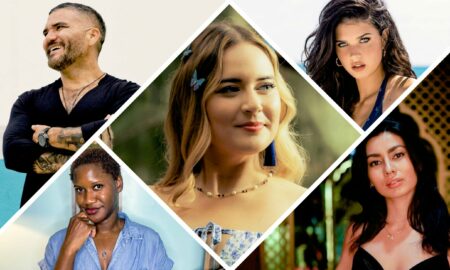
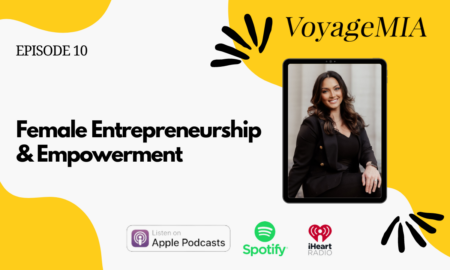
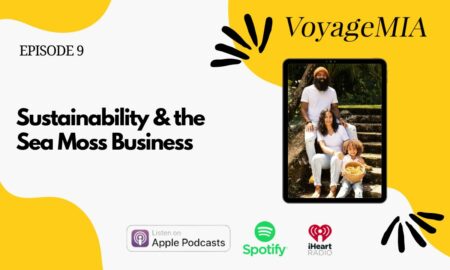
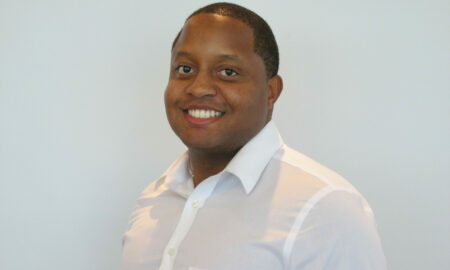
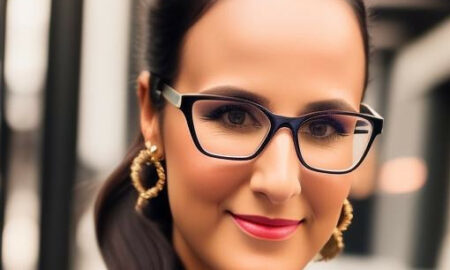
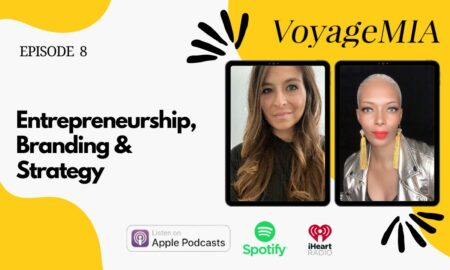
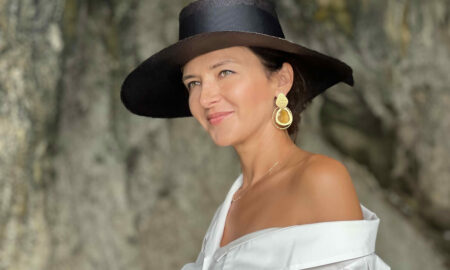
Anthony
February 7, 2019 at 9:54 pm
What a beautiful idea, and should be nation wide program. Great job young lady.